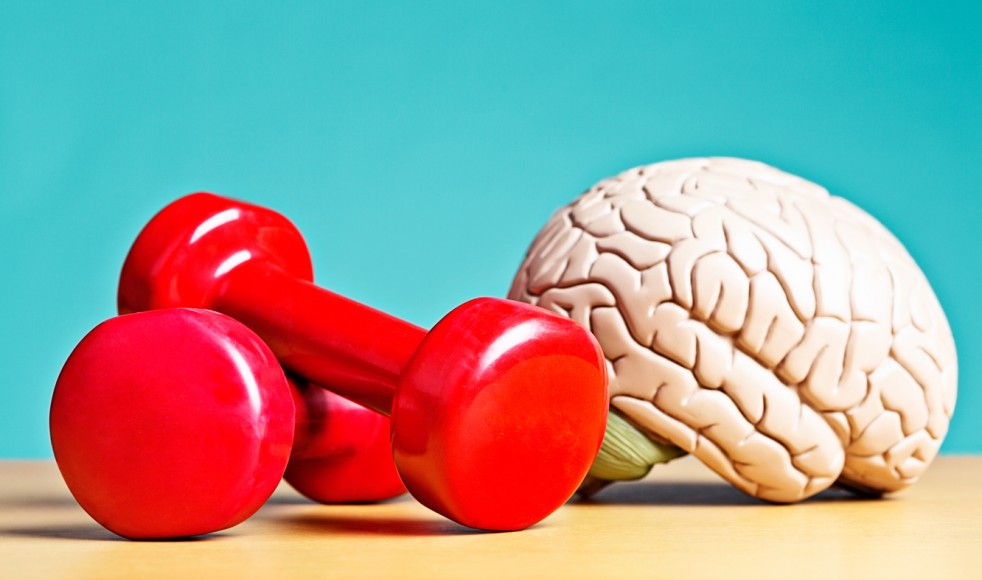11 Dec 2024

Tired Earth
By The Editorial Board

‘You are what you eat.’
Very true: We all know that what and how much we eat has a large impact on our physical health. Approximately 11 million deaths worldwide in 2017 were related to dietary risk factors, such as low intake of whole grains.
‘Sport ist Mord’ (a German saying, meaning exercise kills).
Quite false: Physical activity is a well-known contributor to good physical health. The World Health Organization (WHO) recommends at least 150 to 300 minutes of moderate aerobic activity weekly for adults, as regular physical activity can prevent and support to manage heart disease, type-2 diabetes and cancer. On the contrary, sedentary behaviour can increase the risk of these diseases, which cause almost three quarters of deaths worldwide.
However, what is still less well known is that diet and physical activity also play a curial role for mental health. In Europe about 27% of individuals are affected by one or more mental disorders. Contrary to other risk factors of mental disorders, diet and physical activity can be modified. The high prevalence of mental disorder and the modifiability of lifestyle highlight the need to better understand the link between mental health, diet and physical activity to formulate evidence-based lifestyle recommendations promoting mental health.
It has been suggested that aerobic exercise renders the brain more efficient, plastic and adaptive, which leads to improved memory. Despite the positive effects of exercise on cognition, there is also increased evidence that exercise can improve mood and reduce the risk of depression. Interestingly, the findings of a positive association between physical activity and mood seem to be particularly robust, when physical activity is measured objectively via an accelerometer – as in the APPetite study – and is not only assessed by self-report. Physical activity also seems to have beneficial effects on symptoms associated with Attention Deficit Hyperactivity Disorder (ADHD), although there is only a small number of studies so far. One of these studies has shown that physical activity is associated with reduced impulsivity in adults with ADHD. Overall, physical activity is good for our brain and our psychological well-being.

With regard to dietary habits, a Western-style diet that is characterised by high intake of saturated fat and sugar, seems to be associated with a higher vulnerability for mood disorders. Our diet strongly influences our gut microbiome that is connected to the brain via the gut–brain axis. Thus, the food we eat influences all aspects of physiology, including gut–brain communication, brain function and even behaviour. Dietary patterns influence our behaviour, but this is not a one-way street. There is some evidence, that individuals high in impulsivity also show different dietary patterns. Within the Eat2beNICE consortium we showed that ADHD is characterised by an increased intake of sugar and saturated fat. So far, it is unclear whether this dietary pattern contributes to ADHD symptoms such as impulsivity.
Lifestyle factors, such as exercise and diet, have the potential to maintain or even improve mental health as discussed above. However most research has focused on how diet and physical activity influence mental health in the long term. Less is known about how diet and physical activity can improve mental health and well-being within the next minutes or hours – hence in the short term. Can an apple or a workout improve our mood immediately or shortly after? Does a cookie make us feel more anxious? Knowing what improves or impairs mental well-being in the short term can have important implications for patients to decrease disease-related burden in everyday life.
In the APPetite study which is part of the Horizon2020-funded project “Effects of Nutrition and Lifestyle on Impulsive, Compulsive, and Externalising behaviours – Eat2beNICE” (No 728018) we are interested in how diet and physical activity influence impulsivity in daily life. To study this, we developed a smartphone application which is used to track what our participants eat and drink. Physical activity is captured by a wrist-worn accelerometer. Additionally, 8 times per day the smartphone asked the participants how impulsive they are. In this way we can study whether eating specific foods and/or engaging in physical activity can have a positive or negative short-term effect on impulsivity in daily life. May the consumption of foods high in sugar and/or fat increase momentary impulsivity? Can eating vegetables or a 20-minute jog help decrease impulsivity? Answers to these questions are needed to formulate recommendations and have the potential to improve mental health and well-being.
More information about the Eat2beNICE project: www.newbrainnutrition.com
Source : openaccessgovernment.org
Comment